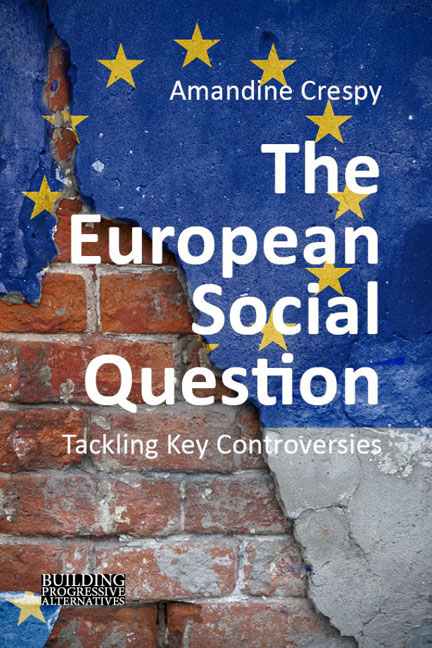Book contents
- Frontmatter
- Contents
- Acknowledgements
- Abbreviations and acronyms
- Dedication
- Introduction: “Social Europe” – irrelevant, catching up or dangerous?
- 1 What is the European social question?
- 2 Is the EU a key player in addressing social issues?
- 3 Are socially minded actors too weak in EU policy-making?
- 4 Is European social regulation a thing of the past?
- 5 Does liberalization undermine social cohesion?
- 6 Does the European social dialogue really protect European workers?
- 7 Does soft coordination support welfare states?
- 8 Is redistribution unconditional?
- 9 Is the EU fit for the social challenges of the twenty-first century?
- Conclusion: from the social question to the democratic question
- Index of CJEU judgments
- References
- Index
5 - Does liberalization undermine social cohesion?
Published online by Cambridge University Press: 20 December 2023
- Frontmatter
- Contents
- Acknowledgements
- Abbreviations and acronyms
- Dedication
- Introduction: “Social Europe” – irrelevant, catching up or dangerous?
- 1 What is the European social question?
- 2 Is the EU a key player in addressing social issues?
- 3 Are socially minded actors too weak in EU policy-making?
- 4 Is European social regulation a thing of the past?
- 5 Does liberalization undermine social cohesion?
- 6 Does the European social dialogue really protect European workers?
- 7 Does soft coordination support welfare states?
- 8 Is redistribution unconditional?
- 9 Is the EU fit for the social challenges of the twenty-first century?
- Conclusion: from the social question to the democratic question
- Index of CJEU judgments
- References
- Index
Summary
Liberalization is rarely addressed as one of the components of social policy. On the contrary, political discourses about the EU depict liberalization policies as the embodiment of a “neoliberal Europe” incompatible with the project of a “Social Europe”. Moreover, previous chapters have stressed how social policy at the European level has developed as an “add-on” (Copeland & Day 2015) aiming to facilitate market creation. Yet, one should go beyond simplistic oppositions to understand the complex effects of liberalization on social cohesion and inequal¬ities. Liberalization can be defined as the broadening of markets. It therefore stimulates cross-border trade by allowing competition between domestic and foreign economic operators. To do so, two types of barriers to cross-border trade must be lifted: tariffs, on the one hand, and on the other hand, national regulations that do not match the standards of foreign operators, therefore preventing them from offering their goods or services in a particular national market. For this reason, liberalization often comes with deregulation, which can, however, be offset by the establishment of new rules at the European level (re-regulation). Liberalization is at the very heart of the European integration process, which is built from its outset on the four freedoms enshrined in the Treaty of Rome. If the free movement of goods and capital only affects social policy to a limited extent, the free movement of persons and services, in contrast, raises a number of issues that are addressed in this chapter.
There are basically two contrasted ways to conceive of liberalization in rela¬tion to social cohesion. A central belief driving EU integration is that liberal¬ization creates opportunities that can enhance social cohesion both nationally and cross-nationally. The founding fathers of the EEC believed firmly that the opening of national markets would drive not only growth but also wages and living standards upward, a recurring theme in the 1957 Treaty of Rome. The free circulation of workers, in particular, has been conceived as a source of opportunity for people from economically depressed regions to seek a better life elsewhere in Europe. Liberalization as opportunity remains a main frame of reference used by the EU institutions to legitimize the pursuit of the comple¬tion of the single market, especially in the area of services.
- Type
- Chapter
- Information
- The European Social QuestionTackling Key Controversies, pp. 93 - 112Publisher: Agenda PublishingPrint publication year: 2022



